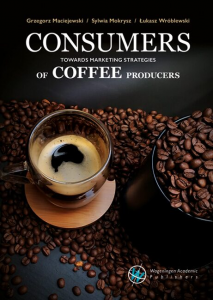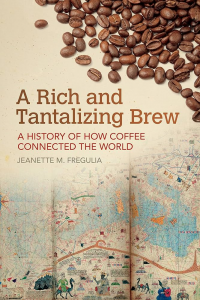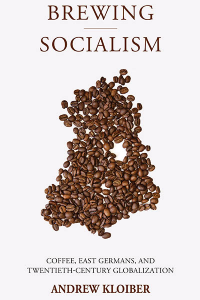Coffee is more than just a beverage, it’s a global ritual that connects people across cultures, borders, and generations. From bustling cafés in Paris to roadside stalls in Ethiopia, coffee serves as a shared language of hospitality and community. It fuels workplaces, inspires creativity, and anchors social traditions in nearly every corner of the world. In bringing people together around a simple cup, coffee quietly unites humanity through shared experience.
Below you will find a selection of books dedicated to coffee and all it brings to the world. On display in July 2025 “Coffee Culture” is available in the Redpath Library Building main floor and online.
Consumers towards marketing strategies of coffee producers
“This is the first book presenting the relation between coffee producers and consumers of coffee beverages, at marketing management level. Many books offer advice on how to write effective marketing strategies, but only few indicate how to implement them successfully. This book belongs to the second group. The proposed solutions can be applied by coffee producers, but can also be adapted to suit the needs of enterprises operating on other markets. The actual needs of the clients are presented, and the authors show how to implement and control the adopted marketing strategies to satisfy those needs”
Coffee and community : Maya farmers and fair-trade markets
“We are told that simply by sipping our morning cup of organic, fair-trade coffee we are encouraging environmentally friendly agricultural methods, community development, fair prices, and shortened commodity chains. But what is the reality for producers, intermediaries, and consumers? This ethnographic analysis of fair-trade coffee analyzes the collective action and combined efforts of fair-trade network participants to construct a new economic reality.”
A rich and tantalizing brew : a history of how coffee connected the world
“The history of coffee is much more than the tale of one luxury good–it is a lens through which to consider various strands of world history, from food and foodways to religion and economics and sociocultural dynamics. A Rich and Tantalizing Brew traces the history of coffee from its cultivation and brewing first as a private pleasure in the highlands of Ethiopia and Yemen through its emergence as a sought-after public commodity served in coffeehouses first in the Muslim world, and then traveling across the Mediterranean to Italy, to other parts of Europe, and finally to India and the Americas. At each of these stops the brew gathered ardent aficionados and vocal critics, all the while reshaping patterns of socialization. Taking its conversational tone from the chats often held over a steaming cup, A Rich and Tantalizing Brew offers a critical and entertaining look at how this bitter beverage, with a little help from the tastes that traveled with it–chocolate, tea, and sugar–has connected people to each other both within and outside of their typical circles, inspiring a new context for sharing news, conducting business affairs, and even plotting revolution.”
Brewing socialism coffee, East Germans, and twentieth-century globalization
Placing coffee at the center of its analysis, Brewing Socialism links East Germany’s consumption and food culture to its relationship to the wider world. Andrew Kloiber reveals the ways that everyday cultural practices surrounding coffee drinking not only connected East Germans to a global system of exchange, but also perpetuated a set of traditions and values which fit uneasily into the Socialist Unity Party’s conceptualization of a modern Socialist Utopia. Sifting through the relationship between material culture and ideology, this unique work examines the complex tapestry of traditions, history and cultural values that underpinned the socialist German Democratic Republic (GDR).





